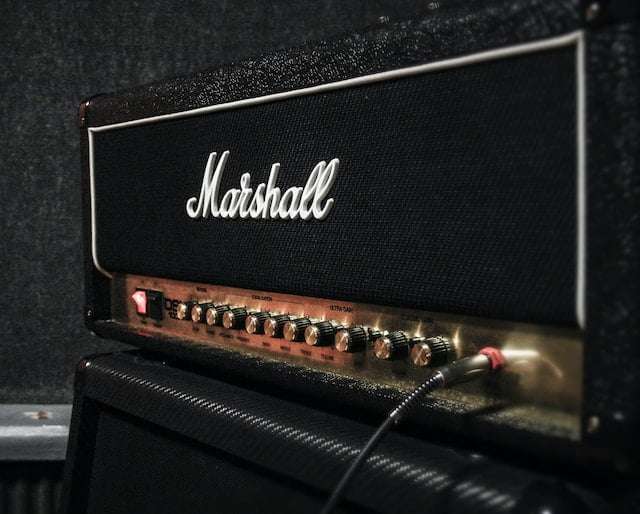Amplifiers are an integral part of any audio system. They are responsible for boosting the audio signal and providing power to the speakers to produce sound. In this article, we will discuss how long amplifiers last and what factors contribute to their lifespan.
Factors Affecting Amplifier Lifespan
Factors affecting amplifier lifespan are related to the quality of the components, the usage frequency and intensity, the maintenance and care, and the environmental conditions. Some of the factors that can affect the performance and longevity of an amplifier are:
Quality
The average lifespan of an amplifier can range from a few years to several decades, depending on the quality of the components used. An amplifier made with high-quality components is likely to last longer than one made with cheap, low-quality components. For instance, if an amplifier’s capacitors are low-quality, they are likely to fail within a short period. On the other hand, high-quality capacitors can last for decades.
Usage
Another factor that affects an amplifier’s lifespan is how it is used. If an amplifier is used frequently or for extended periods, it is likely to wear out faster than one that is used less frequently. The amount of power an amplifier produces also affects its lifespan. If an amplifier is used at high volumes for extended periods, it is more likely to wear out faster than one that is used at low volumes.
Maintenance
Regular maintenance is essential to extending the lifespan of an amplifier. This includes cleaning the amplifier’s components, checking for loose connections, and replacing any worn-out parts.
Heat Factors
Overheating is one of the most common problems with amplifiers. Overheating can cause damage to the amplifier’s components and reduce its lifespan. Proper ventilation is crucial to preventing overheating.
Amplifiers generate heat, and if this heat is not dissipated properly, it can cause the amplifier to overheat. It is also essential to ensure that the amplifier is not placed in an enclosed space or near other heat-generating devices.
Accessories Components
Using high-quality cables and connectors can also help extend an amplifier’s lifespan. Low-quality cables and connectors can cause signal loss and increase the likelihood of noise and interference, which can damage the amplifier’s components over time. Using high-quality cables and connectors can help reduce signal loss and improve the overall sound quality of the system.
Humidity
Moisture can cause corrosion, short circuits, and electrical leakage in amplifiers. Humidity can be caused by condensation, spills, or high ambient humidity.
To protect from humidity problems amplifiers should be kept in dry and well-ventilated places. They should also be protected from water and liquids.
Dust
Dust can accumulate on the surface and inside of amplifiers, affecting their appearance and functionality. Dust can block the airflow, reduce heat dissipation, and interfere with the electrical contacts.
To prevent dust accumulation, amplifiers should be cleaned regularly with a soft cloth or a vacuum cleaner. They should also be covered when not in use.
Vibration
Vibration can cause mechanical stress and wear on amplifiers. Vibration can be caused by loudspeakers, transportation, or external sources. Amplifiers should be mounted securely on stable platforms. They should also be isolated from sources of vibration with rubber feet or pads.
Power supply
The quality and stability of the power supply can affect the performance and lifespan of amplifiers. Power supply problems can include voltage fluctuations, spikes, surges, brownouts, blackouts, or noise. These problems can cause distortion, clipping, overheating, or damage to the amplifier circuitry.
To avoid power supply issues, amplifiers should be connected to reliable and regulated power sources. They should also be equipped with surge protectors or filters.
Impedance matching
The impedance of the amplifier output and the load input should be matched to ensure optimal power transfer and efficiency. Impedance mismatch can cause signal loss, distortion, or oscillations in amplifiers. Amplifiers should be matched with compatible speakers or headphones. They should also be adjusted for different impedance levels if needed.
Parasitic feedback
Parasitic feedback is a phenomenon where an unwanted signal is coupled back to the amplifier input through a parasitic path. This can cause instability, oscillations, or noise in amplifiers.
To safeguard against parasitic feedback complications, amplifiers should have proper grounding and shielding. They should also have negative feedback loops to cancel out the positive feedback.
Finally, it is important to consider the warranty when purchasing an amplifier. Most amplifiers come with a warranty, which can range from one to several years. A warranty can provide peace of mind and protection against any defects or issues that may arise during the warranty period.
Types of Amplifiers and Their Lifespan
Now that we’ve covered the factors that affect the lifespan of an amplifier, let’s look at how long you can expect your amplifier to last based on its type.
Solid-State Amplifiers
Solid-state amplifiers are the most common type of amplifier and are widely used in audio systems. They use solid-state components such as transistors and integrated circuits to amplify audio signals. Solid-state amplifiers are known for their reliability and durability, and they can last for decades if well-maintained. The lifespan of a solid-state amplifier depends on the quality of components used, usage, and maintenance.
Solid-state amplifiers can generate a significant amount of heat, which can cause damage to the components and reduce their lifespan. Proper ventilation and cooling are essential to prevent overheating and extend the lifespan of the amplifier. Dust and debris can also accumulate inside the amplifier, causing it to overheat and damage the components. Regular cleaning and maintenance can help prevent this and extend the lifespan of the amplifier.
Tube Amplifiers
Tube amplifiers use vacuum tubes to amplify audio signals. They are known for their warm and rich sound, making them popular among audiophiles. However, they are less reliable and durable than solid-state amplifiers and require more maintenance.
The lifespan of a tube amplifier depends on the quality of the tubes used, usage, and maintenance. Vacuum tubes have a limited lifespan and will eventually need to be replaced. The lifespan of a tube amplifier can be extended by using high-quality tubes and performing regular maintenance.
Tube amplifiers generate a significant amount of heat, and proper ventilation and cooling are essential to prevent overheating and damage to the components. Dust and debris can also accumulate inside the amplifier, causing it to overheat and damage the components. Regular cleaning and maintenance can help prevent this and extend the lifespan of the amplifier.
Hybrid Amplifiers
Hybrid amplifiers combine the features of solid-state and tube amplifiers. They use solid-state components for preamplification and tube components for power amplification. Hybrid amplifiers are known for their warm and rich sound and are more reliable than tube amplifiers.
The lifespan of a hybrid amplifier depends on the quality of the components used, usage, and maintenance. Proper ventilation and cooling are essential to prevent overheating and extend the lifespan of the amplifier. Dust and debris can also accumulate inside the amplifier, causing it to overheat and damage the components. Regular cleaning and maintenance can help prevent this and extend the lifespan of the amplifier.
Digital Amplifiers
Digital amplifiers use digital signal processing (DSP) to amplify audio signals. They are known for their efficiency, high power output, and low distortion. Digital amplifiers are relatively new compared to other types of amplifiers, and their lifespan is not yet fully known.
The lifespan of a digital amplifier depends on the quality of the components used, usage, and maintenance. Proper ventilation and cooling are essential to prevent overheating and extend the lifespan of the amplifier. Dust and debris can also accumulate inside the amplifier, causing it to overheat and damage the components. Regular cleaning and maintenance can help prevent this and extend the lifespan of the amplifier.
Frequently Asked Questions (FAQ’s)
Q. How long can I expect my amplifier to last?
Ans: The lifespan of an amplifier varies depending on several factors, including the type, quality of components used, usage, and maintenance. With proper care and maintenance, most amplifiers can last for several decades. In some cases, amplifiers can last for generations, becoming family heirlooms that are passed down from one generation to the next.
Q. What factors affect the lifespan of an amplifier?
Ans: Several factors can affect the lifespan of an amplifier, including the type, quality of components used, usage, and maintenance. Amplifiers that use high-quality components and are used sparingly are more likely to last longer than those that use lower-quality components and are pushed to their limits.
Q. Do tube amplifiers have a shorter lifespan than solid-state amplifiers?
Ans: Yes, tube amplifiers have a shorter lifespan than solid-state amplifiers. This is because tube amplifiers require more maintenance and have more components that are prone to failure. In addition, tube amplifiers generate more heat than solid-state amplifiers, which can cause damage to the components and reduce the lifespan of the amplifier.
Q. Can I extend the lifespan of my amplifier?
Ans: Yes, you can extend the lifespan of your amplifier by following proper maintenance procedures and using high-quality components. Regular cleaning and maintenance can help prevent dust and debris from accumulating inside the amplifier, reducing the risk of overheating and damage to the components. In addition, proper ventilation and cooling are essential to prevent overheating and extend the lifespan of the amplifier.
Q. How do I know when my amplifier needs maintenance?
Ans: There are several signs that your amplifier may need maintenance, including distortion, reduced sound quality, and overheating. If you notice any of these signs, it is essential to have your amplifier inspected by a qualified technician. Regular maintenance can also help identify potential problems early, allowing them to be addressed before they cause serious damage to the amplifier.
Conclusion
The lifespan of an amplifier depends on several factors, including the type, quality of components used, usage, and maintenance. Solid-state amplifiers are the most reliable and durable, while tube amplifiers require more maintenance and have a limited lifespan. Hybrid amplifiers combine the features of solid-state and tube amplifiers and are more reliable than tube amplifiers.
Digital amplifiers are relatively new, and their lifespan is not yet fully known. Proper care and maintenance are essential to extend the lifespan of any amplifier, regardless of the type. By following proper maintenance procedures and using high-quality components, an amplifier can last for several decades or even generations.
You might also like,

